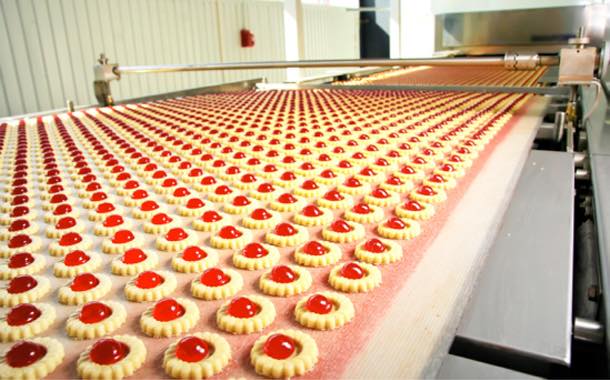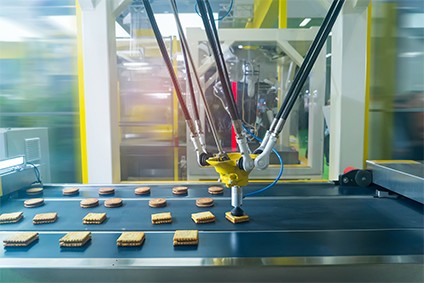Introduction
In today's swiftly advancing food industry, businesses are seeking lasting remedies to fulfill the expanding need for quality food products while lessening their ecological effect. Contract food manufacturing has actually emerged as a feasible choice for companies aiming to outsource their production needs while keeping control over product advancement and also quality assurance. This article checks out the idea of contract food manufacturing in Australia as well as its function in advertising sustainability within the food industry.

The Surge of Contract Food Manufacturing in Australia
Understanding Agreement Food Manufacturing
Contract food manufacturing is a tactical partnership in between a brand name proprietor and a contract manufacturer, where the latter generates products on behalf of the former. This arrangement enables brand name owners to concentrate on advertising and marketing, item development, and also distribution while leveraging the know-how and also sources of specialized contract manufacturers.

Benefits of Contract Food Manufacturing
Cost Effectiveness: Contract food manufacturing gets rid of the need for substantial capital investments in facilities, devices, and workforce. This cost-saving action permits brand names to designate their resources towards other crucial locations of company growth. Scalability: As need for a certain item varies, agreement makers can swiftly change production degrees to suit market needs. This adaptability ensures that brand names can fulfill customer need without excess inventory or wastage. Expertise as well as Advancement: Agreement makers commonly have extensive understanding and also experience in details food groups or procedures. By teaming up with these professionals, brands can tap into their imagination and also harness cutting-edge solutions for item development and improvement. Quality Guarantee: With rigid quality control steps in place, agreement makers comply with industry criteria and also regulatory needs. This dedication to quality ensures that brand names provide risk-free as well as premium products to customers consistently. Supply Chain Management: Contract food manufacturing improves the supply chain by consolidating production, product packaging, labeling, as well as circulation under one roofing system. This incorporated method lessens logistical complexities as well as enhances total operational efficiency.The Environmental Influence of Agreement Food Manufacturing
Reducing Carbon Footprint
Contract food manufacturing provides chances to minimize the environmental impact of food manufacturing via various means:
Efficient Source Use: Agreement suppliers maximize source intake by applying energy-saving techniques, reducing water use, and also reducing waste generation. These sustainable steps add to a reduced carbon footprint throughout the whole manufacturing process. Locally Sourced Active ingredients: By sourcing ingredients from neighborhood distributors, agreement producers reduce transport distances and also linked emissions. This method supports regional economies while promoting sustainability within the supply chain. Eco-Friendly Product packaging: Contract food suppliers stress making use of environment-friendly packaging products, such as biodegradable or recyclable choices. This dedication to lasting product packaging reduces waste and fosters responsible consumption.Embracing Renewable Energy
Contract food producing centers in Australia are increasingly adopting renewable resource resources to power their operations. Photovoltaic panel, wind turbines, as well as various other clean energy remedies help in reducing dependence on fossil fuels as well as add to a greener future for the industry.
Addressing Sustainability Challenges in Contract Food Manufacturing
Waste Administration as well as Recycling Initiatives
Contract food makers focus on waste administration through detailed recycling programs as well as waste reduction strategies. By carrying out effective waste segregation systems, business can draw away substantial amounts of waste from garbage dumps as well as advertise a round economy.
Water Preservation Measures
Water deficiency is an international worry, as well as contract food producers play their part in addressing this difficulty. Firms purchase water-saving innovations, such as innovative filtering systems and water reuse efforts, to lessen their freshwater consumption.
Collaboration with Lasting Suppliers
Contract food producers actively look for collaborations with vendors committed to lasting methods. By prioritizing eco conscious providers, these business make certain that their entire supply chain aligns with sustainability goals.
FAQs
What is contract food manufacturing? Contract food manufacturing describes the outsourcing of food manufacturing to specialized suppliers that produce items in support of brand name owners.
How can contract food manufacturing advantage businesses? Contract food manufacturing offers cost effectiveness, scalability, experience, as well as quality assurance to brands aiming to focus on advertising and also distribution.
How does contract food manufacturing promote sustainability? By maximizing source utilization, embracing renewable resource, and also carrying out waste management and recycling initiatives, contract food manufacturing minimizes its environmental impact.

What are some lasting product packaging options in contract food manufacturing? Eco-friendly product packaging products such as naturally degradable or recyclable options are frequently utilized in contract food manufacturing to decrease waste.
How do agreement food manufacturers save water? Agreement food manufacturers invest in water-saving technologies as well as implement water reuse initiatives to decrease their freshwater consumption.
What function does cooperation with sustainable suppliers play in contract food manufacturing? By partnering with eco aware providers, contract food makers guarantee that their entire supply chain lines up with sustainability goals.
Conclusion
Contract food production presents a sustainable option for organizations looking for to satisfy the growing need for top quality foodstuff while lessening their ecological effect. By leveraging the expertise of specialized manufacturers as well as food and beverage companies in Australia taking on environment-friendly methods, brand names can contribute to a greener future for the Australian food market. Accepting sustainability not just profits the environment but additionally improves brand name credibility as well as consumer count on an increasingly conscious market.